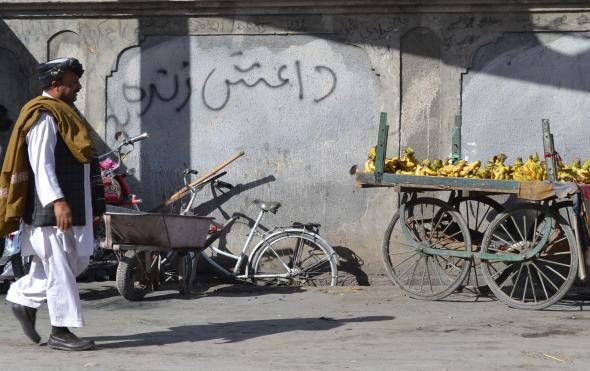Earlier this week I wrote about how ISIS’s strategy of broadcasting its most horrific acts of violence to the world is an integral part of its recruiting strategy. While it alienates the vast majority of the public, even people who might otherwise be sympathetic to the group’s political goals, for a certain kind of potential recruit, beheadings and the mass murder of civilians are selling points.
Competing jihadi groups now seem to be taking a page out of ISIS’s book. The New York Times reports Wednesday that the Taliban have been carrying out a wave of kidnappings and beheadings of members of Afghanistan’s Hazara ethnic group. Beheading hasn’t traditionally been a Taliban tactic, but as a Hazara member of parliament tells the paper, “The Taliban are trying to send out a new message that they are similar in their brutality to ISIS. … They’re trying to show they are as bad as ISIS.” Why? ISIS carried out its first attack in Afghanistan last weekend and has reportedly been making inroads among Taliban supporters. The veteran group may now feel it has to adjust to the times.
Some experts believe ISIS’s influence may also have played a part in al-Shabaab’s massacre of 147 people, mainly Christian students at a Kenyan university, on April 2. The Atlantic Council’s Bronwyn Bruton pointed out that al-Shabaab had previously moved away from attacks on students due to public backlash in Somalia, and the fact that it was re-embracing the tactic could be “a sign of a final evolution where it is no longer interested in maintaining political credibility or gaining the support of local communities.” The Somali group has reportedly been losing ground to the Islamic State in the competition for foreign recruits, so the attack may have been an effort to re-establish its credibility to an international audience. This could be part of an effort by the traditionally al-Qaida-linked group to either compete with ISIS or pivot to an alliance with it.
In other words, we’re getting to the point where al-Qaida’s brand of murder just isn’t dramatic enough.
